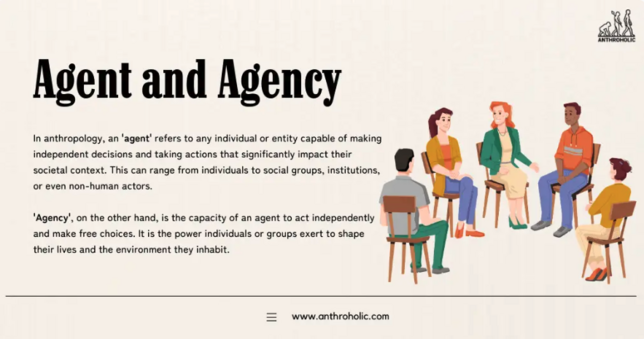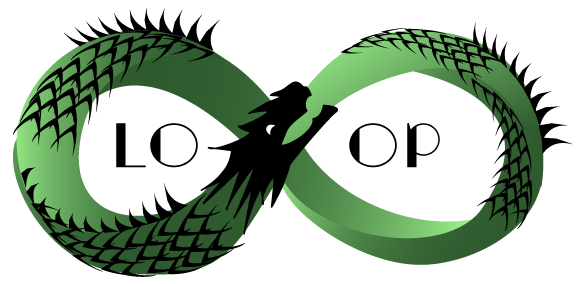Agency Theory
Anthropologists express it this way:

Sociologists talk about it...
"Sociologists understand the relationship between social structure and agency to be an ever-evolving dialectic. In the simplest sense, a dialectic refers to a relationship between two things, each of which has the ability to influence the other, such that a change in one requires a change in the other. To consider the relationship between structure and agency a dialectical one is to assert that while social structure shapes individuals, individuals (and groups) also shape social structure. After all, society is a social creation -- the creation and maintenance of social order require the cooperation of individuals connected through social relationships. So, while the lives of individuals are shaped by the existing social structure, they none the less have the ability -- the agency -- to make decisions and express them in behavior."
By Nicki Lisa Cole, Ph.D.
Updated on January 21, 2019
https://www.thoughtco.com/agency-definition-3026036
From a Clinical Psychologist's point of view...
"Agency is your very own power, your ability, to affect the future."
Many people, however, believe they have very little agency in their life. They take the attitude that life has handed them their own certain circumstances, things are what they are, and they are stuck forever.
Noted Stanford University professor of psychology Albert Bandura, a leader on agency and self-efficacy research, stated in his talk "The Psychology of Human Agency" that people act as agents who intentionally regulate their behavior and life circumstances. They are self-organizing, proactive, self-regulating, and self-reflecting. "They are producers of their life circumstances and not just the products of them."
He goes on to say that while people have the ability to influence themselves, they are also very capable in influencing others to affect change. Today’s society is undergoing drastic social, informational, and technological changes, and these "revolutionary advances in technology and globalization are transforming the nature, reach, speed, and the loci of human influence. These new realities present vastly greater opportunities for people to exercise control over how they live their lives,"

And educators?
There is no consensus about what the term, learner agency, means or whether to use it as a precursor to effective achievement, a component within a constellation of psychological and sociological constructs, an outcome of the teaching-learning process, or all of these [Hitlin, 2009; Confessore, 1992]. This messy semantic context makes it next to impossible to evaluate learner agency needs or to build learning environments that respond to those individual needs. The result is growing educational inequity among various groups of learners who cannot resolve the mismatch between their need to exercise personal choice and control over their learning and the limitations educational institutions impose on their clients concerning what, when, where, how, and with whom they learn.
Ready to read about how Learning Options plans to study Learner Agency? Click "The ULA Study at the top of this page.
A list of scholarly references for Learning Agency will appear here shortly.
Insterested is learning more or working with us? Please fill out a contact form.
